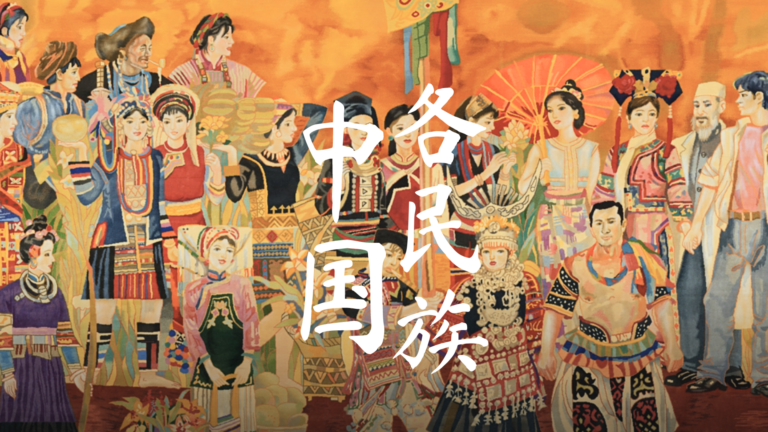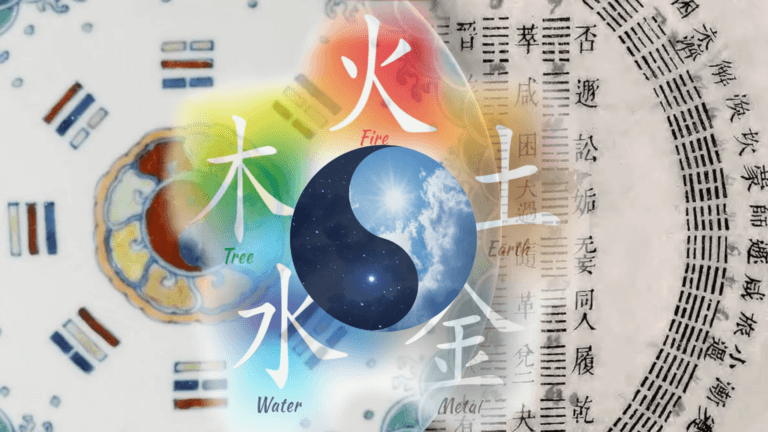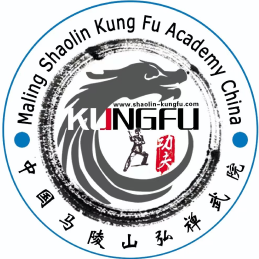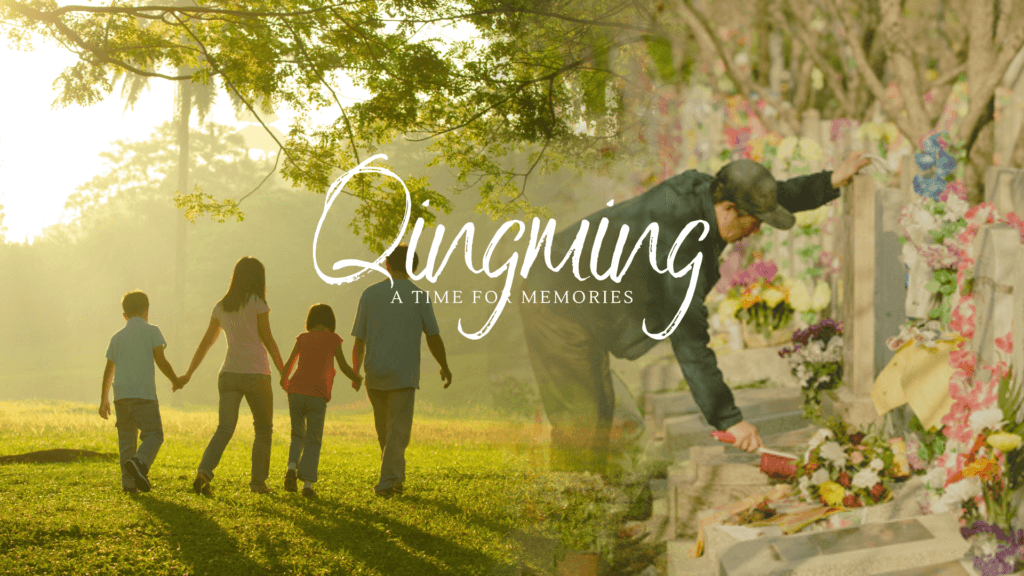
The Qingming Festival, also known as Chinese Memorial Day or Tomb-Sweeping Day, is a traditional Chinese festival that honors ancestors and pays respects to the deceased. It is celebrated on the 15th day after the Spring Equinox, typically falling around April 4th or 5th in the Gregorian calendar. The festival has a history of over 2,500 years and is deeply rooted in Chinese culture and customs.
During the Qingming Festival, families gather to visit the graves of their ancestors to clean and sweep the burial sites, offer prayers, and make offerings of food, flowers, and other items. It is a time for remembrance and reflection, as well as a way to show filial piety and respect for one’s elders and ancestors.
Agricultural Origins & Tradition
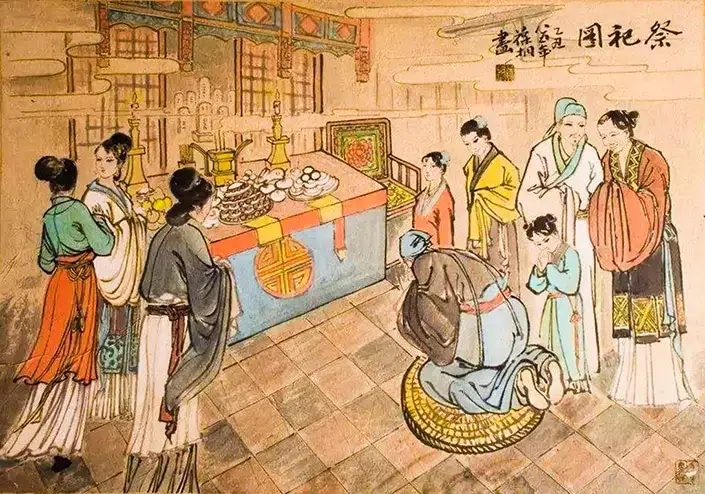
The origins of the Qingming Festival can be traced back to ancient China over 2,500 years to the Zhou Dynasty (1046–256 BCE). During the Zhou Dynasty, agricultural activities were crucial to the survival and prosperity of society. The spring equinox marked the beginning of the planting season, a time when farmers prepared the fields for cultivation. Alongside these agricultural tasks, people also engaged in rituals to honor their ancestors and seek their blessings for a fruitful harvest.
The Qingming Festival began as a way for farmers to pay respects to their ancestors while tending to the land. Families would gather at ancestral tombs to clean and maintain the burial sites, offer prayers and sacrifices, and seek guidance and protection from their ancestors. These rituals were believed to foster harmony between the living and the dead and ensure the prosperity and well-being of future generations.
Over time, the Qingming Festival evolved into a more elaborate cultural event, encompassing a wider range of customs and traditions beyond agriculture. During the Han Dynasty (206 BCE–220 CE), the festival became more formalized, with specific rituals and practices associated with tomb-sweeping, ancestor veneration, and communal gatherings and outdoor activities.
Throughout Chinese history, the Qingming Festival retained its significance as a time for remembrance, reflection, and family bonding. It became an official holiday during the Tang Dynasty (618–907 CE), with imperial edicts regulating its observance and emphasizing the importance of filial piety and respect for ancestors.
One of the most iconic customs associated with the Qingming Festival is the burning of incense and joss paper offerings at gravesites. These offerings are believed to appease the spirits of the deceased and ensure their well-being in the afterlife. Additionally, families often bring along favorite foods and drinks of their ancestors as offerings, as well as paper replicas of money, houses, cars, and other items to provide comfort and prosperity in the spiritual realm.
Social Gatherings & Outdoor Adventures
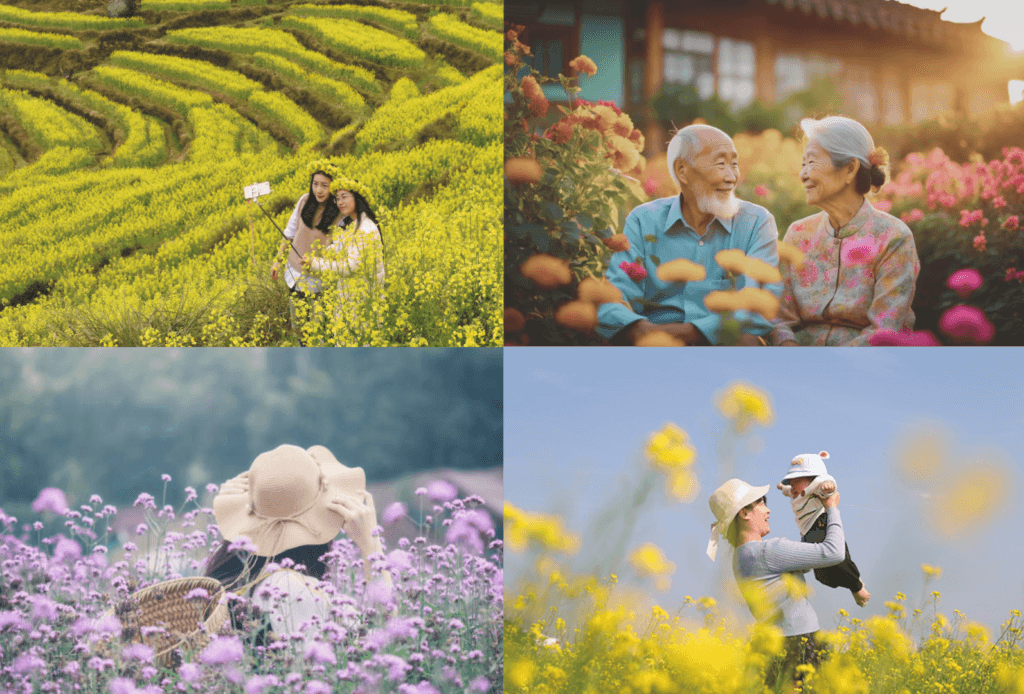
In addition to paying respects to ancestors, the Qingming Festival is also a time for outdoor activities and social gatherings. Many people take advantage of the spring weather to enjoy leisure activities such as flying kites, picnicking, and hiking in the countryside or visiting their hometowns. It is also a time for families to bond and reconnect with one another, strengthening ties and fostering a sense of community.
Because of this, there is significant boost in tourism during the Qingming Festival. However, the nature of tourism during Qingming may vary depending on cultural and regional factors:
Family Visits: One of the most common forms of tourism during Qingming is family visits. Many people take time off work or school to return to their hometowns to pay respects to their ancestors, clean their family graves, and spend time with relatives. This often involves traveling long distances, especially for those who work or study in urban areas far from their ancestral villages.
Cultural and Historical Sites: Qingming Festival is also a popular time for domestic tourism, with many people visiting cultural and historical sites such as temples, ancient tombs, and scenic spots. These places may hold special events or ceremonies during Qingming, attracting tourists interested in learning about traditional customs and rituals.
Outdoor Activities: As Qingming falls during the spring season, many people take the opportunity to enjoy outdoor activities such as hiking, picnicking, and flower viewing. Parks, botanical gardens, and natural reserves often see an influx of visitors seeking to experience the beauty of nature and the arrival of spring.
Tomb-Sweeping Tours: Some travel agencies offer specialized tours during Qingming for those who wish to participate in traditional tomb-sweeping rituals but may not have family graves to visit or are unable to travel to their hometowns. These tours may include visits to historic cemeteries, guided tomb-sweeping ceremonies, and cultural activities related to ancestor worship.
Religious Pilgrimages: For individuals of certain religious faiths, Qingming may also be a time for religious pilgrimages or spiritual retreats. Buddhist temples and Taoist shrines may hold special ceremonies or rituals to commemorate the festival, attracting devotees and pilgrims from near and far.
Overall, the Qingming Festival holds significant cultural and spiritual importance in China, serving as a time to remember and honor the past while also embracing the beauty of nature and the joys of family life. It reflects the enduring values of filial piety, respect for tradition, and reverence for the interconnectedness of past, present, and future generations.
We Wish You A Happy Qingming!


